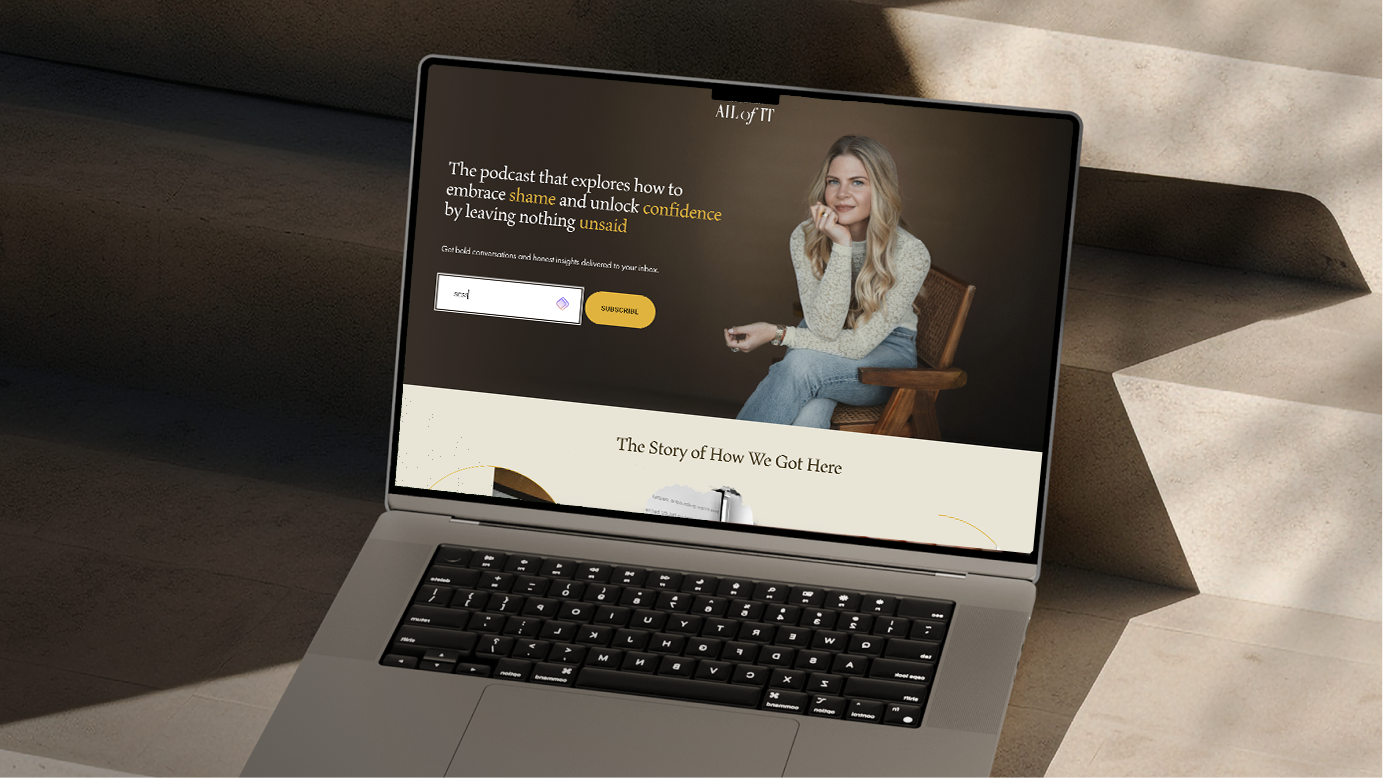Where (and When) Do You Choose to Use Your Voice?
Here's to a life where nothing is left unsaid.
When do you choose to use your voice? And perhaps more importantly — where? Some amplify it in boardrooms, others through a lens, while many speak only in whispers to those they trust most.
But how often do you speak from a place that is truly your own — unfiltered, unedited, unafraid?
For nearly 20 years, I’ve built my career by putting words into the world — first by giving them away, then by holding them back, believing silence was the price of success. If you’ve ever lent your voice to build someone else’s dream or swallowed your words to protect your own, you know this feeling too.
Today, I’m stepping out from behind the “for work” curtain to share something I’ve carried quietly for a long time: Life, Death, All of It — a podcast and Substack that distills a decade of exploration into the taboo topics we are taught to keep quiet.
This project began in 2015 as company research into the struggles tied to financial debt. But our findings led us somewhere unexpected — to shame and the weight of what we leave unsaid. The way we avoid talking about the things that shape us most: money, love, failure, grief, identity, sex, and death. Then my research partner with a PhD in collective shame shared the first draft of our white paper, and I read the sentence that changed everything:
“Shame is the death of the self within the self.”
That single line stuck with me because I realized the heaviest burdens aren’t our experiences — they’re the silence surrounding them. This is the gap that keeps us from true confidence.
Studies show that for 85% of people who struggle with self-worth, the root cause is unspoken shame.
Research from Dr. Brené Brown — whose path first crossed mine when I was just beginning to explore this project — found that the primary reason we hold back from speaking up, whether in personal relationships or professional settings, is the fear of judgment and rejection. We convince ourselves that staying quiet keeps us safe.
But in reality, silence is what keeps us stuck.
Brendan Buchard’s Confidence-Competence Loop helped me make sense of this, showing that the more we use our voice, the more competent we feel. And the more competent we feel, the more confidence we build. Confidence isn’t something we have — it’s something we create by moving through fear with action.
The moral: Don’t let fear hold you back. Do it scared.
And ten years ago, my voice was shaking. So I started asking the questions polite society prefers we ignore — the ones that make people squirm because they matter most. I found that when we tackle the topics we’ve been taught to avoid. We stop hiding. We stop shrinking. And we find confidence. Not the performative kind, but the quiet, grounded certainty that comes from owning all of it.
Life, Death, All of It is an exploration of what it means to live fully, to claim total confidence, by unearthing shame and leaving nothing unsaid.
What You Can Expect:
Conversations with authors, scientists, and thinkers who challenge the status quo.
Practical tools to navigate life’s unspoken, untamed edges with clarity and confidence.
Candid insights from real stories, with the occasional awkward but heartfelt life lesson.
The first podcast episodes launch later this month, but until then, you can follow along here or dive into the Substack to join this experiment in radical honesty.
Weekly Confidence Challenge:
More often than not, shame keeps us silent. If there’s something pressing on your heart — a truth, an idea, a story — consider sharing it. It doesn’t have to be public, but it does have to be real. If you’re unsure who to share it with, I’m here to listen. I’m genuinely curious — and taking note of your responses for ongoing research. So, what’s the thing you long to say out loud?
Here’s to being with life, with death, with all of it.



